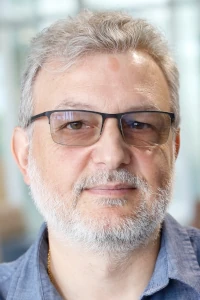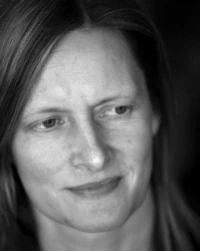Program
Schedule
The satellite will consist of keynote talks (40min) and contributed talks (20 min).
You can also download a printable version of the program.
July 2, 2021 8:30 EDT
The Satellite takes place on July 2, 2021 from 8:30 EDT to 12:30 EDT ( in your local timezone.)
Keynote Speakers

Filippo Menczer
Observatory on Social Media, Indiana University School of Informatics, Computing, and Engineering
4 Reasons Why Social Media Make Us Vulnerable to Manipulation
As social media become major channels for the diffusion of news and information, it becomes critical to understand how the complex interplay between cognitive, social, and algorithmic biases triggered by our reliance on online social networks makes us vulnerable to manipulation and disinformation. This talk overviews ongoing network analytics, modeling, and machine learning efforts to study the viral spread of misinformation and to develop tools for countering the online manipulation of opinions.

Ulrike Hahn
Department of Psychological Sciences, Birkbeck University of London
The nature of testimony – or why we are more vulnerable to misinformation than we think
Over the past few years, public perception of online social media has shifted from a sense that these are merely new technological platforms that otherwise leave communication with others largely unchanged on to a belief that online social media may actually present a new, and deep, threat to societies. At the same time, much research seeks to devise tools and strategies to help protect individuals from misinformation. However, establishing that (and how) online networks materially affect our beliefs about the world is difficult. In this context, the talk outlines insights that might be gained by considering, from first principles, how rational actors should approach testimonial information from others. Through simulations and experiments it is demonstrated how simple changes to our communication networks may profoundly affect the accuracy of our beliefs, and that such network effects go beyond what one could expect current tools and strategies recommended in the literature to be suitable for. In other words, it is shown how the very nature of testimony makes us individually and collectively vulnerable to misinformation and miscalibration of our beliefs.
Detailed Program
8:30 – 8:40 EDT Opening
Laura Hernández, LPTM CNRS-CY Cergy-Paris University, France
8:40 – 9:25 EDT 4 Reasons Why Social Media Make Us Vulnerable to Manipulation
Filippo Menczer, Observatory on Social Media, Indiana University School of Informatics, Computing, and Engineering, USA
9:25 – 9:45 EDT Completely Unsupervised Opinion Mining in online (professional groups’) discussions
Jafar Mansouri¹², Fabrice Cavarretta², Wassim Swaileh¹, Dimitris Kotzinos¹, [1] ETIS Lab, UMR 8051, CY Cergy Paris University, ENSEA, CNRS, Pontoise, France, [2] ESSEC Business School, Cergy, Paris France
9:45 – 10:05 EDT Bistability and noise improve information propagation in social and biological networks
Mohammad Salahshour, Max Planck Institute for Mathematics in the Sciences, Leipzig, Germany
10:05 – 10:25 EDT Balanced Triad Formation explained by Homophily-induced Dyadic Interactions
Tuan Pham¹², Jan Kobel¹², Rudolf Hanel¹², Stefan Thurner¹²³, [1] Section for the Science of Complex Systems, Medical University of Vienna, Vienna, Austria, [2] Complexity Science Hub Vienna, Austria, [3] Santa Fe Institute, Santa Fe, NM 87501, USA
10:25 – 10:40 EDT Coffee Break
10:40 – 11:25 EDT The nature of testimony – or why we are more vulnerable to misinformation than we think
Ulrike Hahn, Department of Psychological Sciences, Birkbeck University of London, UK
11:25 – 11:45 EDT Agenda-setting effects on Twitter in Brazilian presidential elections 2018
T. Santos¹, J. Louçã¹, H. Coelho², [1] Department of Information Science and Technology, (ISTA), ISTAR–Instituto Universitário de Lisboa (ISCTE‐IUL), Lisbon, Portugal, [2] Department of Informatics of the Faculty of Sciences, Universidade de Lisboa, Lisbon, Portugal
11:45 – 12:05 EDT The effects of party competition on consensus formation
Guillermo Romero Moreno¹, Javier Padilla², and Markus Brede¹, [1] University of Southampton, Southampton, United Kingdom, [2] City University of New York, New York City, USA
12:05 – 12:25 EDT Big Data, autonomous action, and the dynamics of opinion formation
Mariana Vitti Rodrigues, Maria Eunice Gonzalez, Mariana Claudia Broens, José Artur Quilici Gonzalez, Faculty of Philosophy and Sciences, UNESP, Brazil